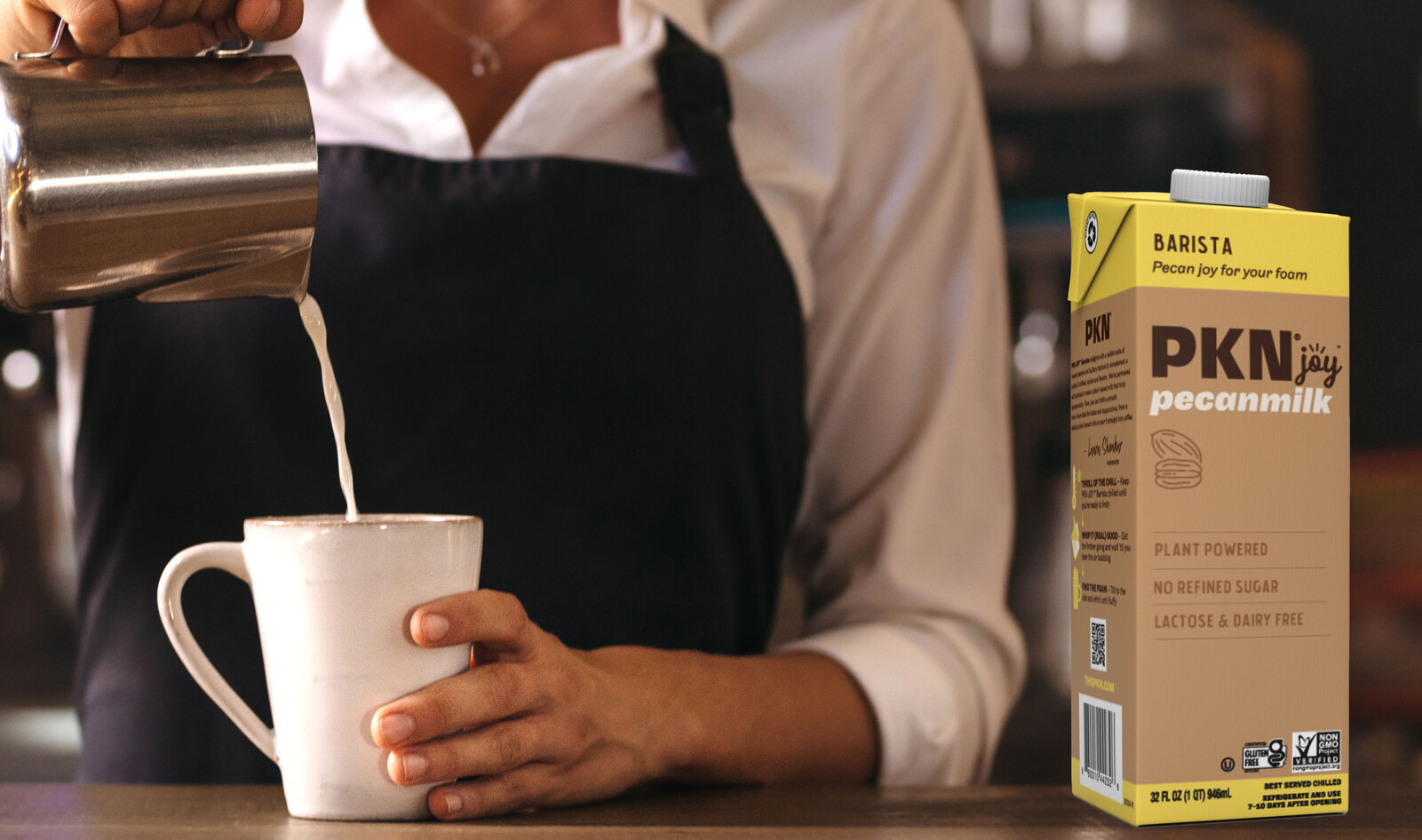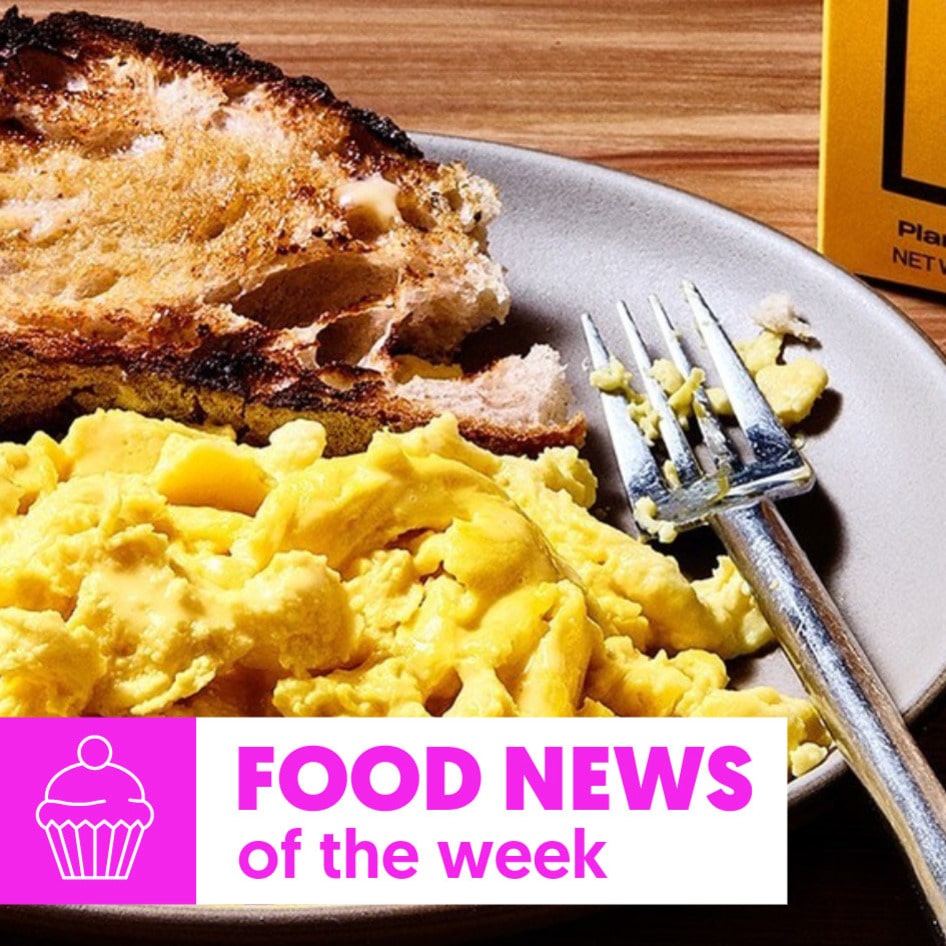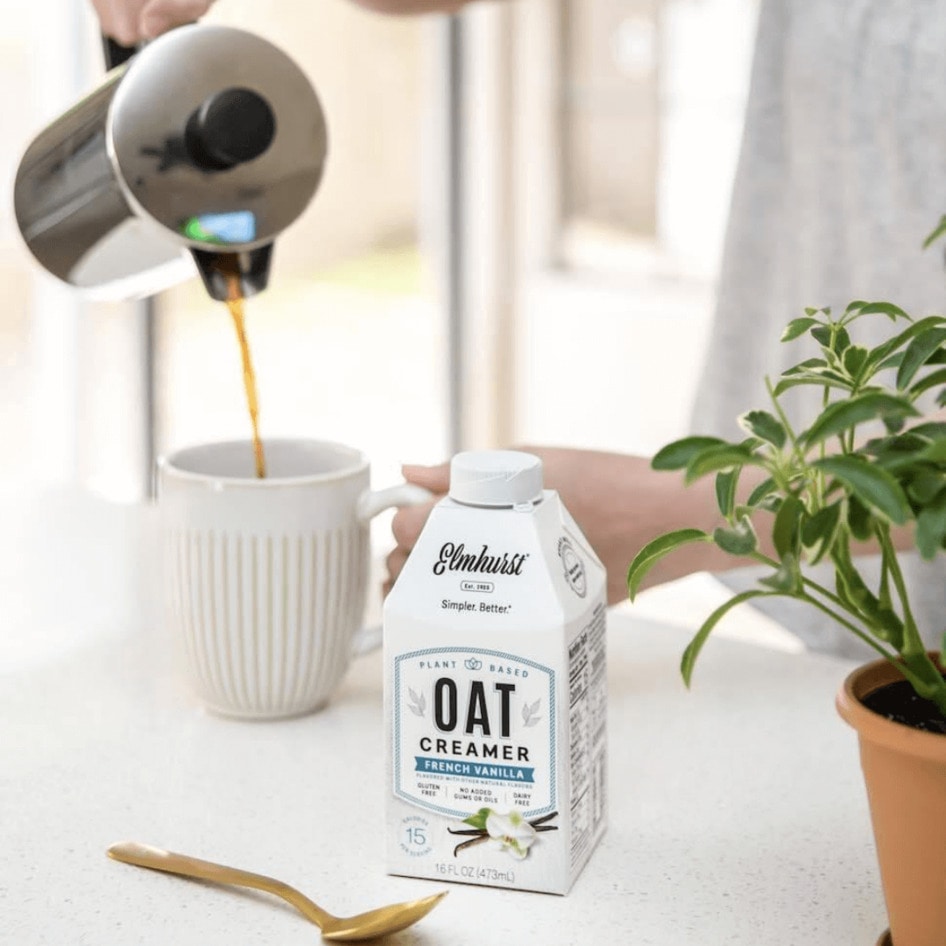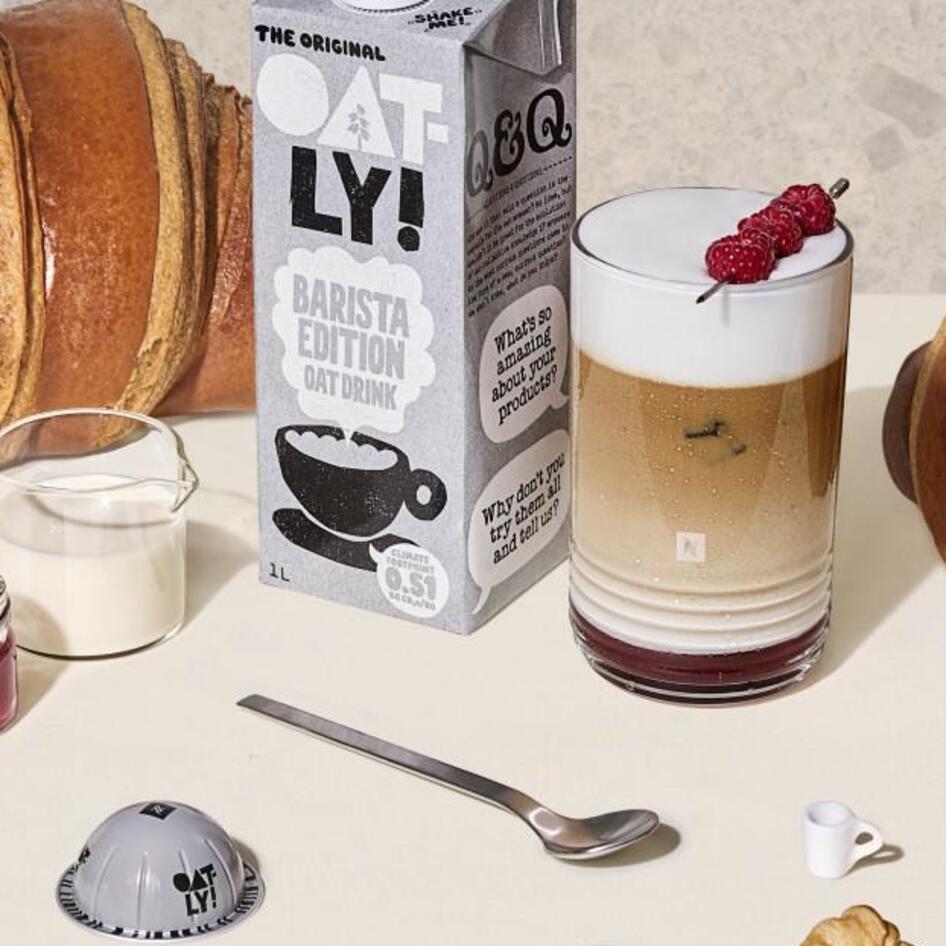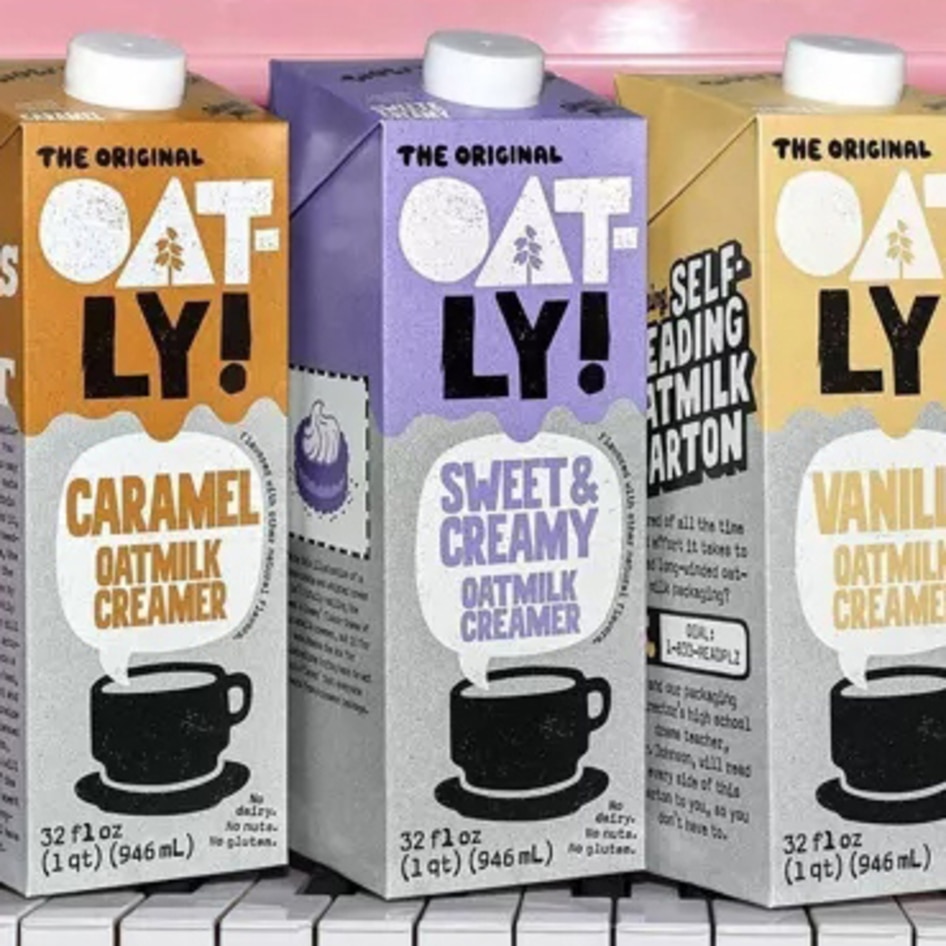The dairy-free market has reshaped how consumers think about milk, especially as more people seek alternatives that align with health, sustainability, and taste preferences. The plant-based milk category has grown to hold a 14.5 percent market share of all milk sold in conventional retail channels, with almond and oat milk leading the charge.
Oat milk has experienced significant growth in the United States plant-based milk market, increasing its share from 0.5 percent in 2018 to 14 percent in 2020. By 2023, oat milk accounted for 20 percent of the plant-based milk market, making it the second most popular option after almond milk.
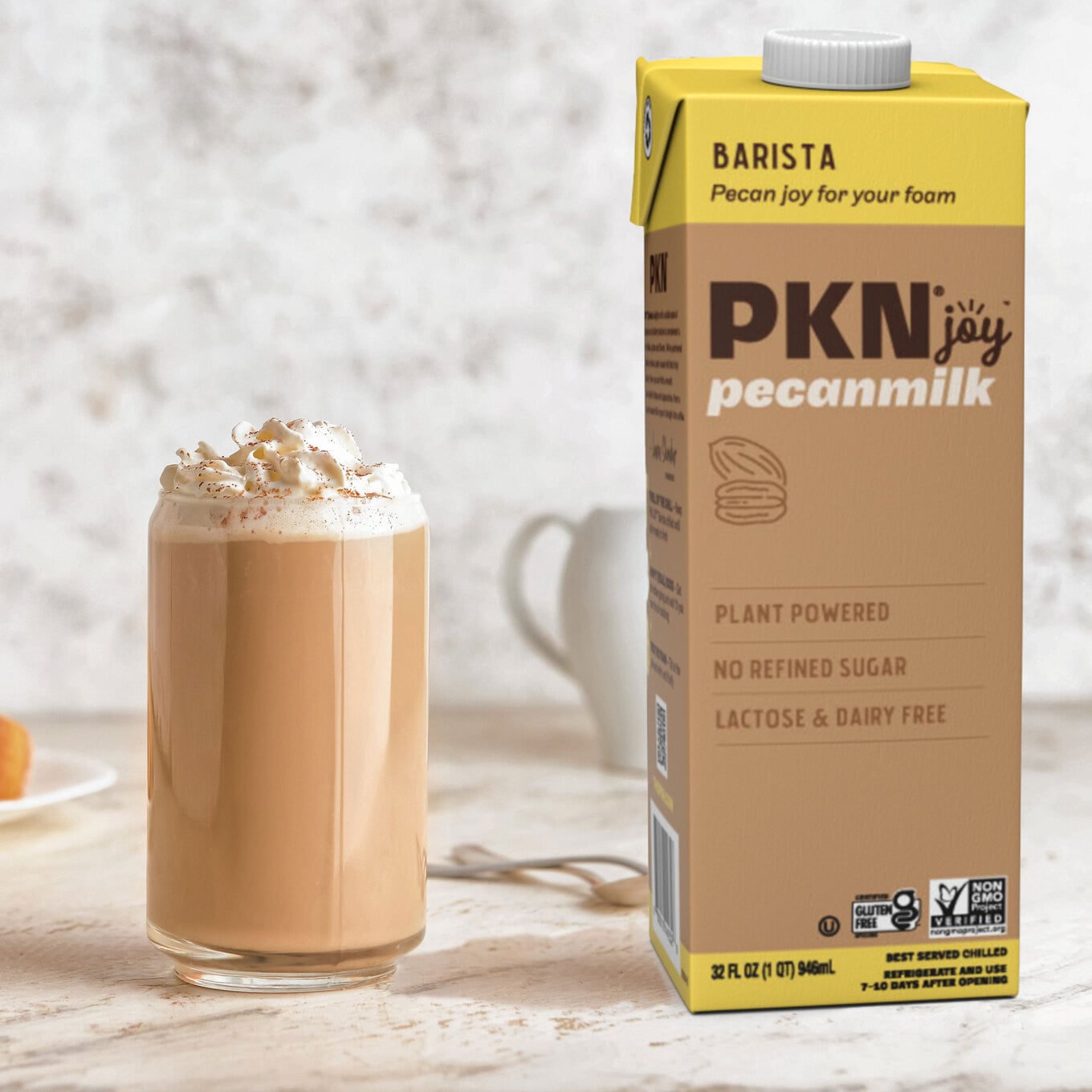 PKN
PKN
But can new entrants, such as pecan milk, become the new dairy-free milk darling? “Pecans are a beloved staple in the American diet that offers a satisfying alternative,” Laura Shenkar, CEO and founder of PKN, the company behind the first pecan milk to hit the market, tells VegNews.
This month, PKN is moving into the barista milk category with the launch of Joy Barista Pecanmilk, sparking the question: could pecan milk be the next oat milk?
Dairy-free milks on the rise
The rise of plant-based milk has been fueled by health concerns, lactose intolerance, and environmental awareness. According to a recent report, the plant-based milk category makes up nearly 15 percent of the total milk market, and oat milk, in particular, has dominated recent sales. Oat milk’s creamy texture and neutral flavor have helped it edge out almond milk as a top choice in cafés and grocery aisles.
However, the dairy-free milk industry is not without challenges. US retail sales of plant-based milk dropped 5.2 percent last year, while sales of dairy milk—which has been on a decades-long decline—fell by 2.1 percent to $17.2 billion. Despite this, Shenkar believes pecan milk can attract new consumers.
“Our early customers have switched from other plant-based milks like oat and almond milks, but PKN has been developed to truly replace cow’s milk with a satisfying taste that lifts the quality of coffee or tea, smoothies, and cereal,” Shenkar says.
By targeting the larger milk-drinking population, pecan milk has the potential to carve out a unique space in the market.
How pecan milk compares
Pecan milk stands apart from competitors due to its nutritional profile and sustainability. Pecans are a nutritional powerhouse, offering the highest levels of flavonoids among tree nuts, according to the National Institutes of Health. Flavonoids are antioxidants linked to reduced inflammation and improved brain health.
Pecans are also a rare plant source of ALA Omega-3 fatty acids, which support heart health by positively impacting cholesterol levels and reducing insulin resistance.
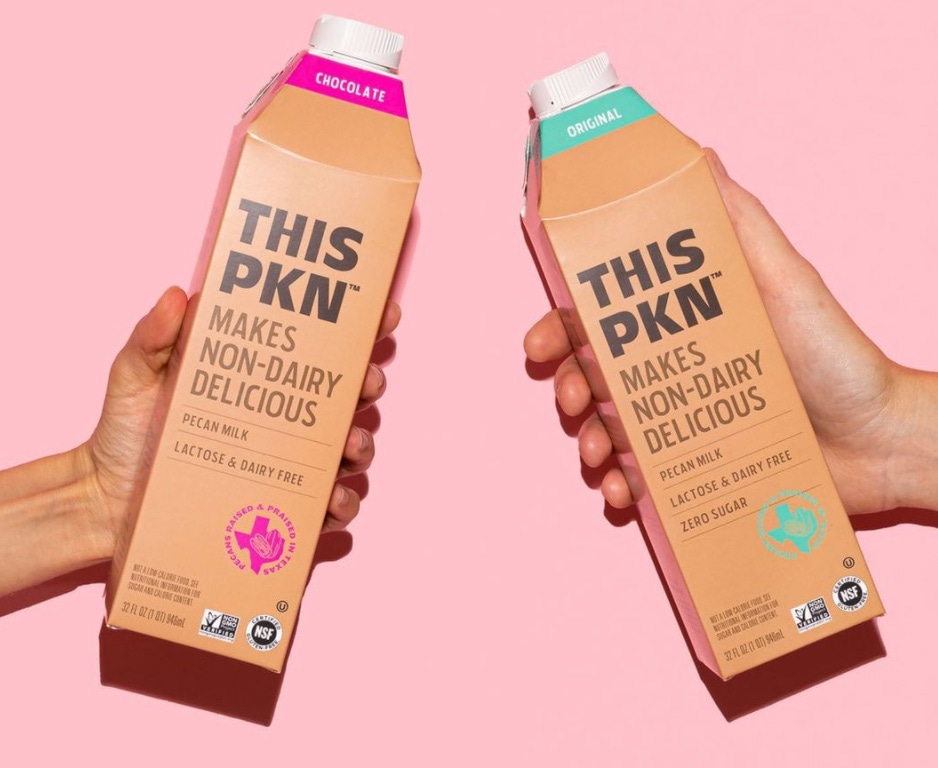
Pecans are rich in polyphenols and contain monounsaturated fats, fiber, and essential minerals such as manganese—all while being naturally low in sugar and sodium. This makes pecan milk a nutrient-dense option compared to oat milk, which is primarily carbohydrate-based.
“As we understand more about how nutrition can support longevity, especially regarding brain and heart health, pecans are emerging as an important part of daily nutrition,” Shenkar says.
Joy Barista Pecanmilk takes this a step further with its smooth, buttery flavor and exceptional foamability, making it a favorite among coffee enthusiasts. Shenkar notes that pecan milk delivers a luxurious experience, whether used in lattes, baking, or smoothies.
Pecan milk’s advantages
In addition to its nutritional benefits, pecan milk offers an environmentally friendly alternative to dairy and even some plant-based milks. Pecans are the only commercial tree nut indigenous to the US and require neither irrigation nor chemical inputs to thrive. This gives pecans an edge over almonds, which have drawn criticism for their water-intensive cultivation in California.
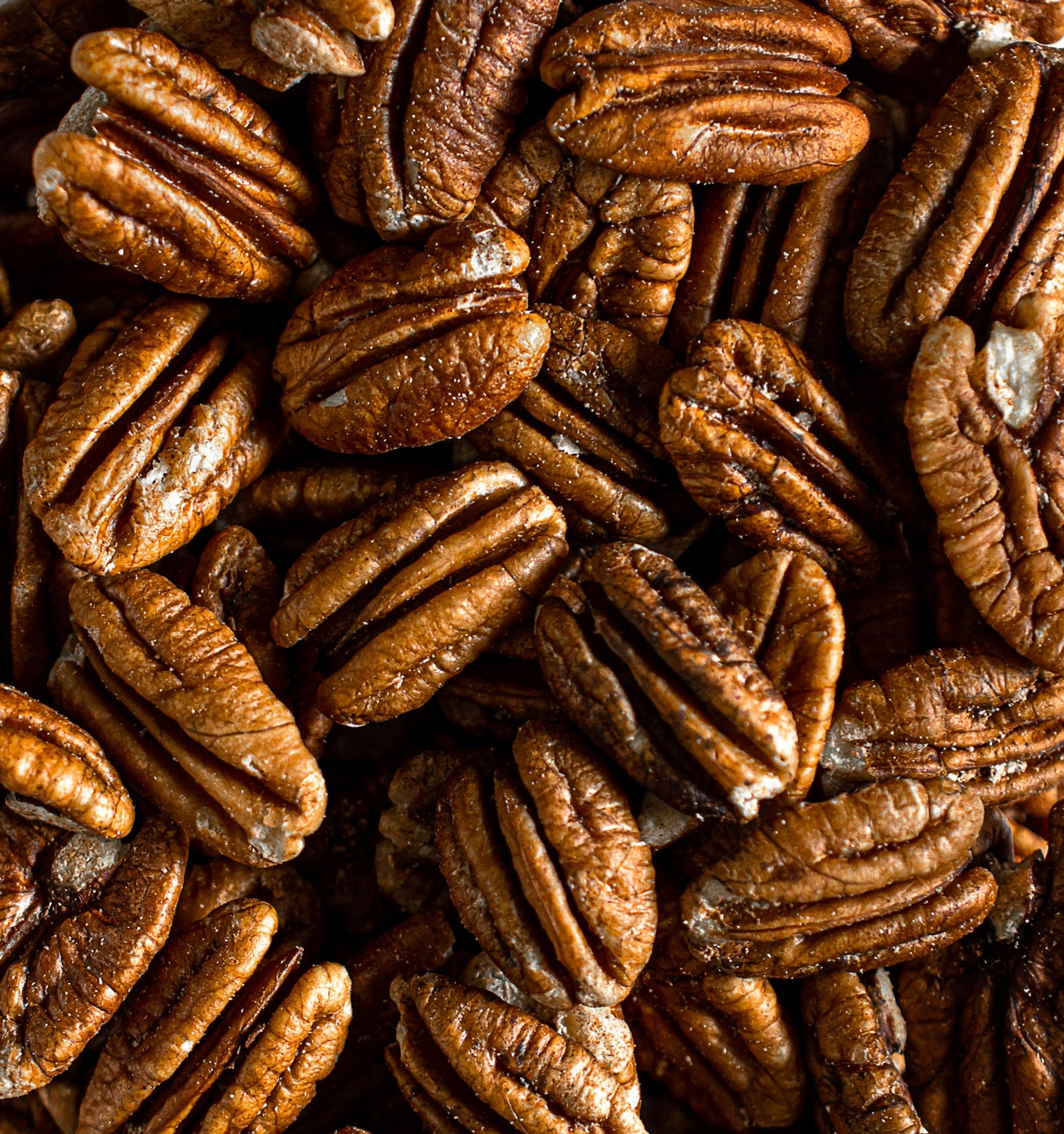 Sara Cervera/Unsplash
Sara Cervera/Unsplash
BECOME A VEGNEWS VIP: Get exclusive product deals, freebies, and perks galore!
“As water scarcity limits nut production in California, pecans are emerging as the only sustainable choice,” Shenkar says. Further, PKN sources pecans from American farmers using regenerative practices.
This sustainability angle aligns with shifting consumer priorities. A 2023 Nielsen report found that nearly 60 percent of consumers consider environmental impact when making purchasing decisions, making pecan milk’s eco-friendly profile a potential selling point.
Pecan milk versus oat milk
Despite its benefits, pecan milk faces stiff competition in a crowded market. Oat milk has become the default dairy-free option in many cafés, thanks to its affordability and wide availability.
Still, pecan milk’s ability to replace cow’s milk could set it apart. A recent study found that 57 percent of milk drinkers who avoid non-dairy alternatives do so because they dislike the taste. PKN aims to fill that gap with a milk alternative that offers a flavor profile closer to traditional dairy.
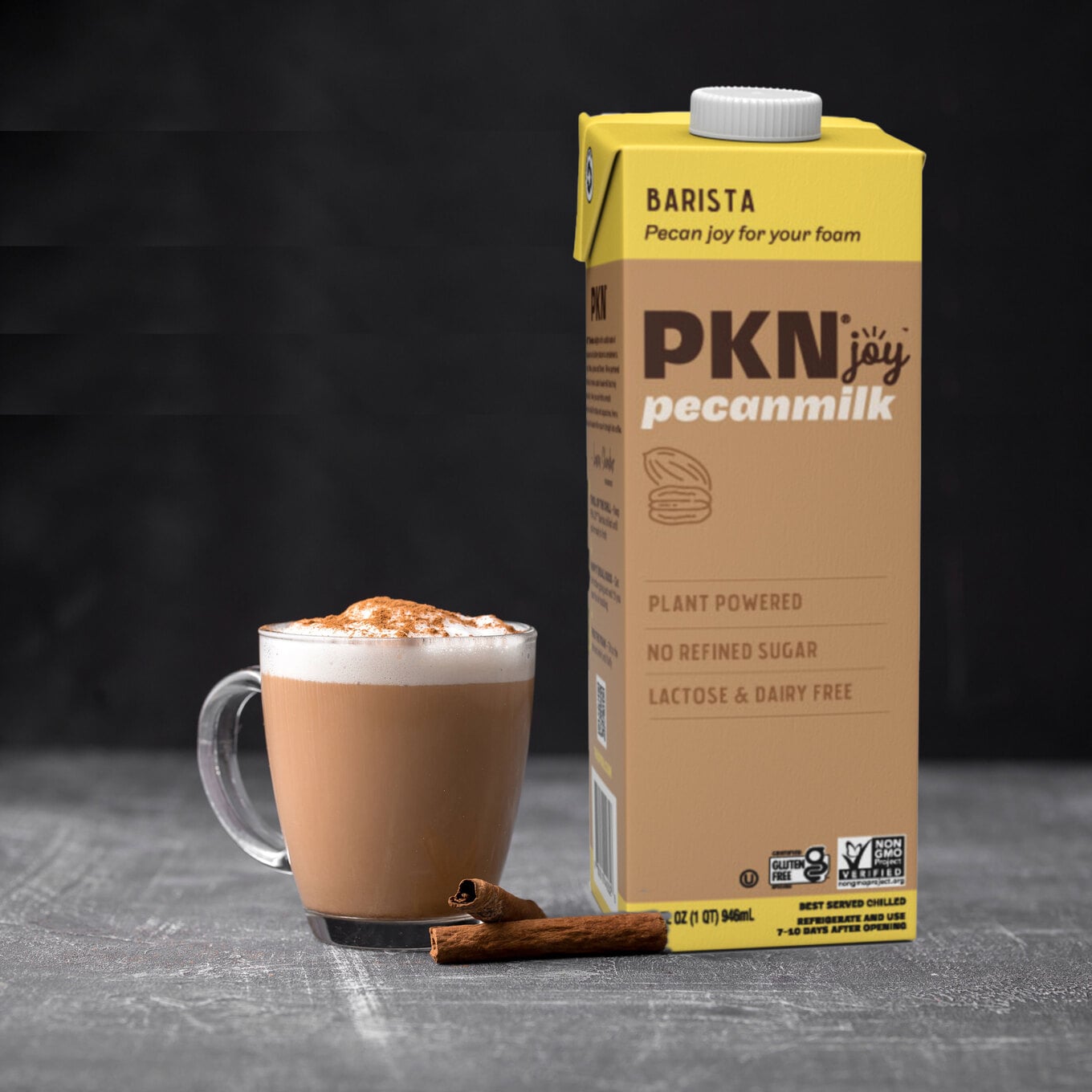 PKN
PKN
For pecan milk to rival oat milk’s popularity, it will need to overcome market inertia and educate consumers about its unique benefits. Shenkar acknowledges this challenge but remains optimistic.
“There are a lot of options for consumers,” Shenkar says. “That can indeed be a challenge as consumers choose the best milk or milks that are best for them.”
For more plant-based stories like this, read:
JUMP TO ... Latest News | Recipes | Guides | Health | Subscribe

